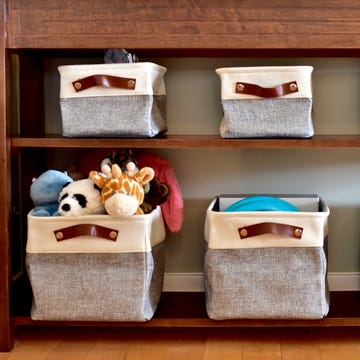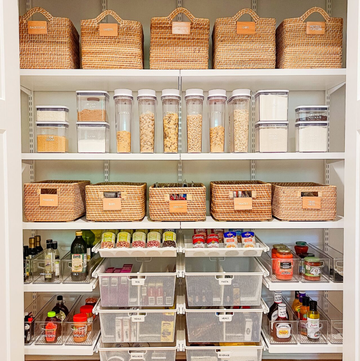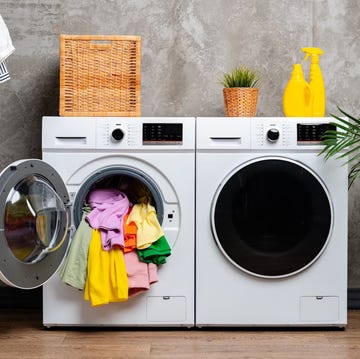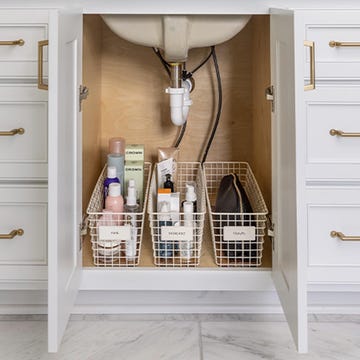When it comes to decluttering your pantry, professional organizers always have a lot to say — but what bad habits are they begging us to break? Out of curiosity, I asked three pro organizers what they NEVER do in their own pantries.
Aside from the obvious (like storing perishable foods and expired items in the pantry), pros are sharing the biggest pantry mistakes they notice when working with clients. From storing cleaning products too close to food (yes, I need to rearrange my setup asap) to going too far with the label maker, here's everything we should all stop doing.
Storing cleaning products
Experts agree: Cleaning products should never be stored in the same place as food. "I would never store toxic products, like household chemicals or cleaning supplies, in the pantry," says Ashley Hines of Thee Tailored Life. Cleaning chemicals can contaminate nearby food through spills, leaks or fumes, which can pose a serious health risk. "The pantry is a food space that should feel safe and nourishing."
Implementing very specific systems
Overly complicated systems are hard to maintain and will inevitably lead to clutter if they don't work for your lifestyle. "Skip overly rigid systems," says Hines. "Your pantry should be flexible enough to handle everyday grocery swaps and changes in taste. If you live with others, keep it simple and easy for everyone to use."
Try to streamline your storage systems (clear containers work best, so you can see what's inside). "Too many bins or mismatched storage solutions can confuse your pantry's flow," adds Lindsay Melvin, owner of Orchid Organizing.
Going overboard with labels
Most organizers recommend labeling bins, baskets and decanted containers, but don't go overboard. "Labels should make sense for your household," says Melvin. "Stick to wide categories like breakfast, grains, snacks, baking and canned foods. This offers you a category yet flexibility."
"I've seen clients try to label EVERYTHING, and this is counterproductive because no one wants to read 50 labels when they're hungry," adds Cheryl Russo of Organizing by Cheryl.
Keeping food they don't like
"I never keep food we do not eat," says Hines. Food, snacks or ingredients you don't plan to eat are taking up space in the pantry and will eventually expire and turn to waste. "Do not let guilt convince you to hang onto items that do not serve your family. If it is unopened and still good, pass it on to a neighbor, friend, family member or local food pantry."
Storing any non-food related items
Leaving bags and containers open
The biggest rule of food storage: Never leave bags or containers open. Everything should be properly sealed to preserve freshness and prevent pests from getting inside.
Many organizers choose to decant everyday food items into glass jars and containers, but you don't have to. "I personally, do not decant my food," says Melvin. "I use clips or rubber bands to secure the food. I feel like my foods ebb and flow, and I may not always have brown, long grain rice, so I don't need a glass jar for it."
Buying bins for aesthetics
Style matters — even inside the pantry, but never sacrifice function for a beautiful storage bin. "Avoid bins that do not fit your shelves or have textures that are hard to clean or prone to shedding," says Hines. Clear bins or mesh baskets work best, so you can see what's inside.
Alyssa Gautieri (she/her) is the associate lifestyle editor for Good Housekeeping, where she covers all things home and interior design. Prior to joining GH in 2022, she wrote for publications including ELLE Decor, Chairish, BobVila.com, Unique Homes Magazine and LODGING Magazine, in addition to crafting product copy for home brands like BrylaneHome and VIGO Industries.














